Ecumenical & Interreligious Relations

Ecumenical and interreligious work is central to the gospel and key to the life of the Presbyterian Church (U.S.A.). Working both domestically and internationally, the PC(USA) is creating appropriate channels of consultation to clarify further understanding around evangelism, witness, and service, providing resources and support that will assist the church in its efforts to engage in ministry within the local context and beyond. The denomination engages in dialogue with other churches and traditions to establish common affirmations. The church’s general approach to interreligious relations is to prioritize relationships with people rather than traditions, recognizing that God is at work in all of God’s creations.
More About Ecumenical and Interreligious Relations
The world is changing at an incredible pace. How do Christians interact with other faith-based and humanitarian institutions domestically and around the world? Ecumenical and Interreligious Relations provides Presbyterians an opportunity to engage in conversation, cooperation, and action with other ecclesial groups. Presbyterians have been among the founders, leaders, and principal supporters of global and national ecumenical bodies.
The Presbyterian Church (U.S.A.) has been at the forefront of local, regional, national, and global ecumenism for more than a century. Presbyterians have been ready to reflect on, pray for, and organize ecumenical initiatives in the life of the worldwide body of Christ and respond to the initiatives of others. From discussions of organic union to the formation of councils of churches, from common efforts in evangelism and mission to upholding concerns for justice and social service, Presbyterians have been deeply involved in the ecumenical work and witness of the church.
The Presbyterian Church (U.S.A.) has long advocated for positive relationships with people of other religious traditions and to follow Christ’s command to “… love the Lord your God with all your heart, and with all your soul, and with all your mind” and to “love your neighbor as yourself.”
Religious plurality has become an issue of prime importance in North America as communities across the country are welcoming greater religious and cultural backgrounds. The implications of loving our religious neighbors as ourselves must pervade all areas of our life together.
The PC(USA) has adopted nine spheres of life in which interreligious understandings are challenging us and need to be acted on by the people of God.
- Human Needs — hunger, natural disasters, poverty, and disease.
- Social Justice — such as forced migration, human rights violations, unjust imprisonment, militarism, and totalitarianism.
- Mission and Evangelism — dialogical interreligious conversations promote the virtues of mutual respect and understanding.
- Conflict — too many of the world’s conflicts have a religious component and is used by government and non-governmental groups to justify war.
- Families — challenges arise for interreligious families as they work through divisions over religious beliefs and how to raise children.
- Education — articulate a broader definition of education that includes, and values lived experiences to engage people.
- Communities — many non-Christian, non-white, non-Western backgrounds often experience discrimination based on religion/culture.
- Congregations — diversity of culture creates challenges as children develop friendships and relationships with those from a different culture.
- Workplace — people can create an environment of respect and love for co-workers of other religions.
The Presbyterian Church (U.S.A.) belongs to ecumenical councils and agencies to live into our call to make visible the unity we have in Christ, including:
- World Council of Churches
- World Communion of Reformed Churches
- National Council of Churches of Christ in the USA
- Churches Uniting in Christ
- Christian Churches Together
Ecumenical Dialogue
Dialogues are designed to heal and address old divisions and differences or to develop a mutual understanding and truth. All dialogues are with the prayer and hope of moving Christian churches and communities closer to visible unity, tearing down dividing walls, seeking reconciliation, and manifesting the wholeness that God intends for the Church and the whole of Creation. This leads to deeper understandings of our shared Christian faith and genuine respect for one another, both hallmarks of unity.
Reformed-Catholic Dialogue
The Presbyterian Church (U.S.A.) has been in conversation for more than 40 years and continues to look for new ways to provide a path for future conversation.
Presbyterian/Episcopal Bilateral
Having had common roots in Britain, as well as in the colonies, and being generally of similar socio-economic and educational levels, Presbyterians and Episcopalians have engaged in conversations toward unity on and off since the 1890s.
Full Communion or Covenants
As a result of past dialogues and prayerful discernment, the Presbyterian Church (U.S.A.) has entered into full communion or covenants with particular denominations. The PC(USA) is in full communion covenant relationship with:
Full Communion
Covenant
The Book of Order affirms the ecumenical commitment of the Presbyterian Church (U.S.A.), particularly in Chapter Five: Ecumenicity and Union. This section outlines our relationships with other denominations and holds that the basis of these relationships is to give visibility to the unity that exists in Christ.
The General Assembly of the Presbyterian Church (U.S.A.) has authorized and directed the formation of covenants, agreements, and statements of purpose with other Christian bodies that address, among other things, the mutual recognition of baptism and the orderly exchange of ministers. Such agreements are said to place us in correspondence with one another.
The PC(USA) is in a relationship of correspondence, meaning the church maintains a relationship with the highest council or governing body with the following:
- Churches with which the PC(USA) had had historical relations outside the United States, as recognized by the General Assembly.
- Churches that are members of the ecumenical bodies in which the PC(USA) holds membership. These ecumenical bodies include Christian Churches Together, Churches Uniting in Christ, National Council of Churches, World Communion of Reformed Churches, and World Council of Churches.
- Churches with which the PCUSA has formal ecumenical dialogue approved by the General Assembly.
Full Communion Partners
The General Assembly of the Presbyterian Church (U.S.A.) is in full communion with those churches so recognized by the General Assembly. These relationships exist as a matter of ecumenical agreement.
Resources
The following information provides guidance when a mid council is in discernment about calling a non-PC(USA) minister/pastor. For mid councils calling a non-PC(USA) minister, refer to the Book of Order (G.2.0505), Transfer of Ministers of Other Denominations, for instructions on how a calling body should receive a minister of another denomination.
Please contact the Office of Ecumenical and Interreligious Relations if you need assistance in any part of this process.
Additional Ministry Areas and Committees
A wealth of information is available across the website that may be helpful to your ministry.
Featured Resources
Contact Us
Dr. Dianna Wright
Director, Ecumenical Relations
dianna.wright@pcusa.org
502-569-5431
Featured News







